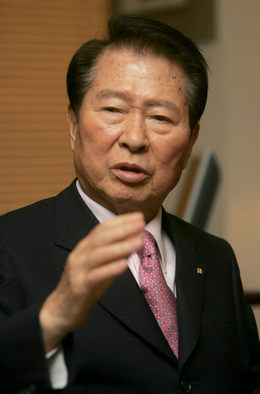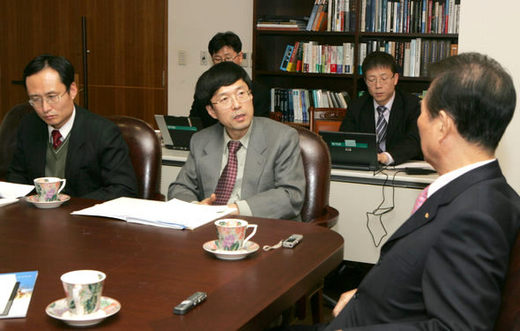 |
|
Kim Dae-jung
|
Former president says meeting must be held, even in Roh’s last year in office
Former president Kim Dae-jung stressed that it would be desirable to hold a joint Korean summit, regardless of the fact that President Roh Moo-hyun’s term will end in February 2008. Kim also predicted that the U.S. and North Korea would both take a direction toward solving the nuclear problem this year. Kim’s remarks were made during a January 4 interview with Oh Kwi-hwan, managing editor of the Hankyoreh. In connection with the possibility of solving the North’s nuclear crisis, Kim said, "This year will see a turning point. I think that the possibility of solving the issue is higher than during last year." He stressed that the U.S. began to unveil a possible package deal for the North when President Bush said during the November Asia-Pacific Economic Cooperation (APEC) meetings that he would move toward an official peace treaty to end the Korean War. The North displayed its power to neighboring countries by conducting a nuclear test, Kim said, adding that now Pyongyang has the opportunity to solve the problem.The Korean War has been at a stalemate since the end of heavy combat in 1953, with only an armistice signed. The North Korea nuclear issue should be resolved at the six-party talks along with South-North negotiations, and the inter-Korean summit would provide a chance for both items to be covered, Kim said, emphasizing that the summit should be accomplished this year. "Before Roh leaves office, the summit should be achieved, or the momentum could be lost," Kim said. Regarding the controversy surrounding South Korea regaining wartime operational control of its armed forces from the U.S. Forces Korea, Kim said, "The U.S. wants to return the wartime command as part of a change in its world strategy, so it will be useless to repeatedly insist on the U.S.’s not returning the command," adding that the South Korean government should be urged to keep intact the ROK-U.S. Mutual Defense Agreement and the U.S. provision of a nuclear umbrella.
 |





